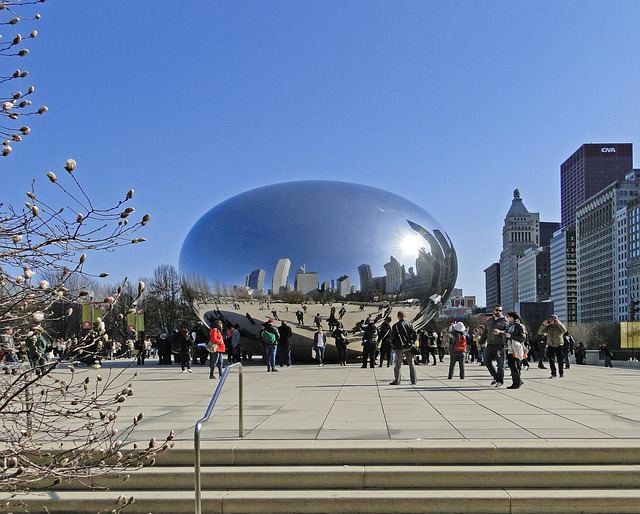Selling a fire-damaged home in Chicago, Illinois, involves adhering to strict disclosure laws aimed at transparency and buyer protection. Sellers must disclose known material defects, including structural issues, environmental concerns, and health risks related to the property's history or condition. This includes detailed documentation on fire damage, water leaks, mold, lead-based paint, and other potential hazards using a mandatory Property Disclosure Form. Understanding these regulations, the scope of potential damage beyond visible signs, and Illinois' exemption rules is crucial for a successful and ethical quick sale, like "sell fire damaged house fast Chicago."
“In Illinois, property disclosure laws play a pivotal role in ensuring transparency during real estate transactions. When selling a home, especially one with fire damage, understanding these regulations is crucial for both sellers and buyers. This comprehensive guide explores what constitutes fire damage, the legal obligations of sellers, and step-by-step advice on navigating the sale of a fire-damaged property in Chicago. Discover how to avoid common pitfalls and effectively disclose potential issues, ensuring a smooth selling process.”
- Understanding Illinois Property Disclosure Laws
- What Constitutes Fire Damage in Real Estate Transactions?
- Legal Obligations of Sellers: Disclosure Requirements
- Exemptions and Exceptions to Disclosure Rules
- Selling a Fire-Damaged Home: A Step-by-Step Guide
- Common Pitfalls and How to Avoid Them During the Sale
Understanding Illinois Property Disclosure Laws

In the state of Illinois, including the bustling metropolis of Chicago, selling a property involves adhering to specific disclosure laws. These regulations are designed to ensure transparency and protect both sellers and buyers during real estate transactions. When it comes to selling a fire-damaged house fast in Chicago, understanding these laws is paramount. Sellers must disclose any known material defects or hazards, including structural issues, environmental concerns, and health risks associated with the property’s history or condition.
Failure to do so may result in legal repercussions. Illinois law requires sellers to provide a Property Disclosure Form to buyers, listing relevant information about the property’s condition. This includes details about fire damage, water leaks, mold, lead-based paint, and any other potential hazards. Buyers have a right to know the true state of the property they are purchasing, which is crucial when considering a quick sale, especially in a competitive real estate market where selling a fire-damaged house fast Chicago might be a priority for many sellers.
What Constitutes Fire Damage in Real Estate Transactions?

When it comes to real estate transactions in Illinois, especially when considering a sell fire damaged house fast Chicago, understanding what constitutes fire damage is crucial. Fire damage can range from minimal smoke and soot residue to extensive structural harm caused by flames or water used in extinguishment efforts. It’s not limited to charred walls and melted flooring; it also includes potential hidden issues like weakened foundations, compromised electrical systems, and damaged plumbing.
In Chicago and throughout Illinois, property sellers are legally required to disclose known fire damage during the sale process. This disclosure ensures buyers are fully informed about any potential repairs or renovations needed. For those looking to sell fire-damaged properties quickly, transparency is key. Promptly addressing and documenting the extent of the damage can facilitate a smoother sales process, ensuring that both parties understand the current state of the property and what steps might be required to restore it.
Legal Obligations of Sellers: Disclosure Requirements

When selling a property, especially a fire-damaged house in Chicago, sellers have legal obligations to disclose certain information to buyers. In Illinois, the disclosure process is designed to protect both parties involved in the transaction by promoting transparency and ensuring that potential issues are brought to light before finalizing the sale. Sellers must provide a Property Disclosure Form (PDF) to the buyer, which requires them to list any known defects or issues with the property, including structural problems, water damage, mold, and indeed, fire damage. This form is a crucial tool for buyers to understand the current state of the house they intend to purchase.
The legal obligations go beyond simply filling out the disclosure form; sellers are required to disclose any information that a reasonable buyer would consider material to their decision to purchase. In the case of fire-damaged properties, this includes not only the extent of the damage but also the steps taken for remediation and any potential future costs associated with repair or restoration. Sellers must be transparent about the history of the property to avoid misleading buyers, ensuring that selling a fire-damaged house in Chicago is done ethically and with full disclosure.
Exemptions and Exceptions to Disclosure Rules

When considering a sale, such as a sell fire damaged house fast Chicago, it’s crucial to understand exemptions and exceptions to disclosure rules in Illinois. Some situations are excluded from the standard property disclosure requirements. For instance, minor cosmetic issues or typical wear and tear are generally not required to be disclosed. This includes things like paint peeling, carpet stains, or broken light fixtures. Home sellers don’t need to reveal information about these types of issues unless they significantly impact a buyer’s decision or are part of a significant repair or renovation.
However, there are critical exceptions to keep in mind. Serious defects, such as structural problems, known mold, or hidden damage from water, pests, or previous fires, must be disclosed. Even if these issues have been repaired, the law requires sellers to reveal their existence and any associated costs or work done. This transparency is designed to protect buyers from unexpected and costly surprises after purchasing a property.
Selling a Fire-Damaged Home: A Step-by-Step Guide

When considering sell fire damaged house fast Chicago, it’s crucial to understand Illinois’ property disclosure laws, especially in cases of significant damage like a fire. The state requires sellers to disclose known material defects, and this includes any structural or systems-related issues resulting from a fire. A thorough inspection is the first step for both sellers and buyers. Sellers should have a certified inspector assess the property, documenting all fire damage and repairs needed. This not only helps in adhering to disclosure laws but also provides an accurate picture of the home’s current state.
Once the inspection is complete, sellers must disclose any findings in writing to potential buyers. This includes a detailed report of the fire damage, along with any ongoing or required repairs. Transparency is key in these situations. By following these steps and ensuring compliance with Illinois property disclosure laws, selling a fire-damaged home can be done efficiently, protecting both the seller and buyer from potential legal issues and ensuring a smooth transaction.
Common Pitfalls and How to Avoid Them During the Sale

When selling a fire-damaged property in Chicago, it’s crucial to understand potential pitfalls and how to navigate them effectively. One common trap is underestimating the cost of repairs, which can lead to a lower sale price or prolonged listing times. To avoid this, conduct thorough assessments with qualified professionals who specialize in fire damage restoration. Gather multiple estimates and compare them carefully before making any decisions.
Another pitfall involves failing to disclose all relevant information about the property’s history. In Chicago, sellers are legally obligated to reveal any known issues, including previous fires, water damage, or structural problems. Honest and transparent communication builds trust with potential buyers and can prevent legal complications down the line. Ensure that your real estate agent is well-versed in disclosure laws and helps you accurately present your property’s current state.
Illinois property disclosure laws are designed to ensure transparency in real estate transactions, especially regarding fire damage. When selling a fire-damaged home in Chicago, understanding these regulations is crucial for a smooth sale. By following the step-by-step guide provided and being aware of potential pitfalls, you can navigate this process efficiently. Remember, prompt disclosure and accurate communication are key to successfully selling your fire-damaged property fast while adhering to legal requirements.






